
Lyser-AP Tablet
Manufacturer
Comed Chemicals Ltd
Salt Composition
Aceclofenac (100mg) + Paracetamol (325mg) + Serratiopeptidase (15mg)
Key Information
Short Description
Lyser-AP Tablet is a combination medicine used to relieve pain and swelling in various conditions like muscle pain, joint pain, and postoperative pain.
Dosage Form
Tablet
Introduction
Lyser-AP Tablet is a combination medicine used to relieve pain and swelling in various conditions like muscle pain, joint pain, and postoperative pain. Thus, it effectively alleviates pain and inflammation in conditions like rheumatoid arthritis, ankylosing spondylitis, and osteoarthritis.
Directions for Use
Take this medicine in the dose and duration as advised by your doctor. Swallow it as a whole. Do not chew, crush or break it. Lyser-AP Tablet is to be taken with food.
How it works
Lyser-AP Tablet is a combination of three medicines: Aceclofenac, Paracetamol and Serratiopeptidase. Aceclofenac is a non-steroidal anti-inflammatory drug (NSAID) and Paracetamol is an antipyretic (fever reducer). They work by blocking the release of certain chemical messengers in the brain that cause pain and fever. Serratiopeptidase is an enzyme which works by breaking down abnormal proteins at the site of inflammation and promotes healing.
Quick Tips
You have been prescribed this combination medicine for relieving pain and inflammation. Take it with food to avoid getting an upset stomach. It may cause dizziness and sleepiness. Do not drive or do anything that requires mental focus until you know how Lyser-AP Tablet affects you. Avoid consuming alcohol when taking Lyser-AP Tablet as it may cause excessive drowsiness and increase the risk of liver damage. Do not take it with any other medicine containing acetaminophen (drugs for pain/fever or cough-and-cold) without asking your doctor first.
Related Medicines
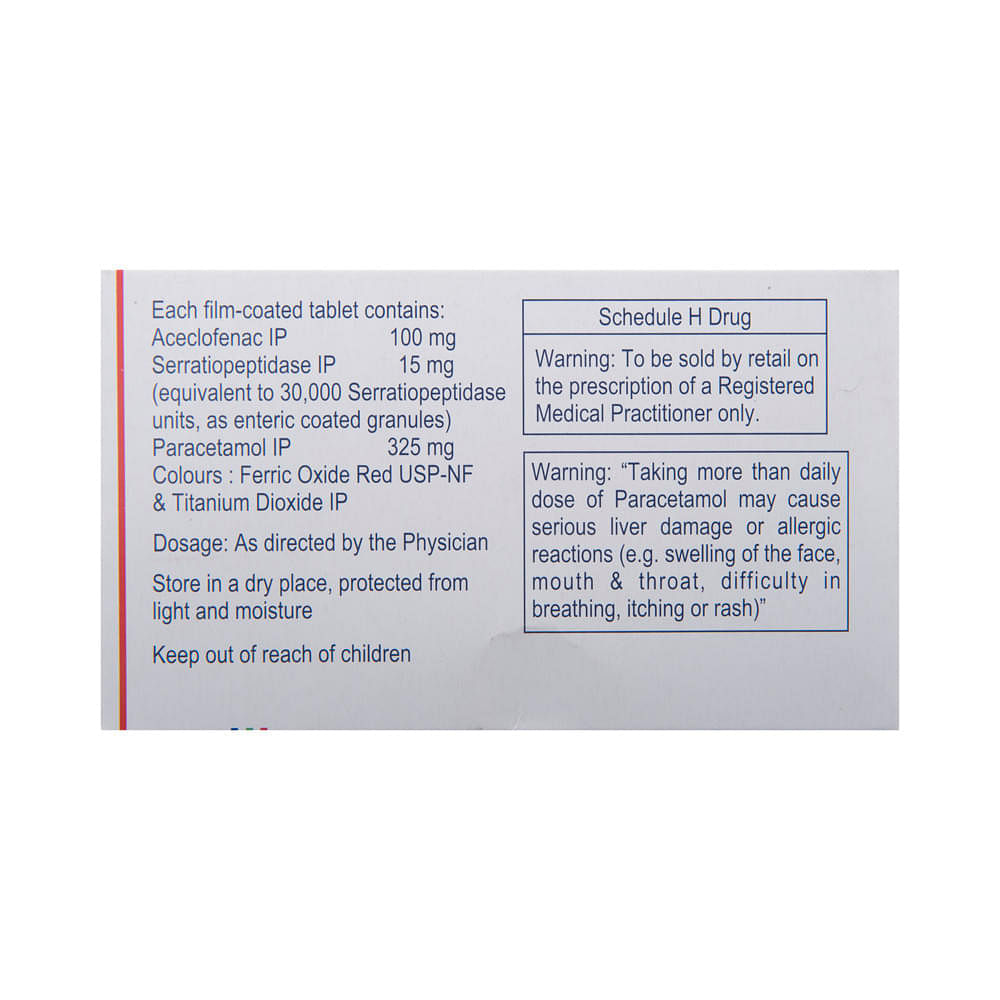
Zerodol-SP Tablet

Erinac SP 100mg/325mg/15mg Tablet

Muclonac SP 100mg/325mg/15mg Tablet
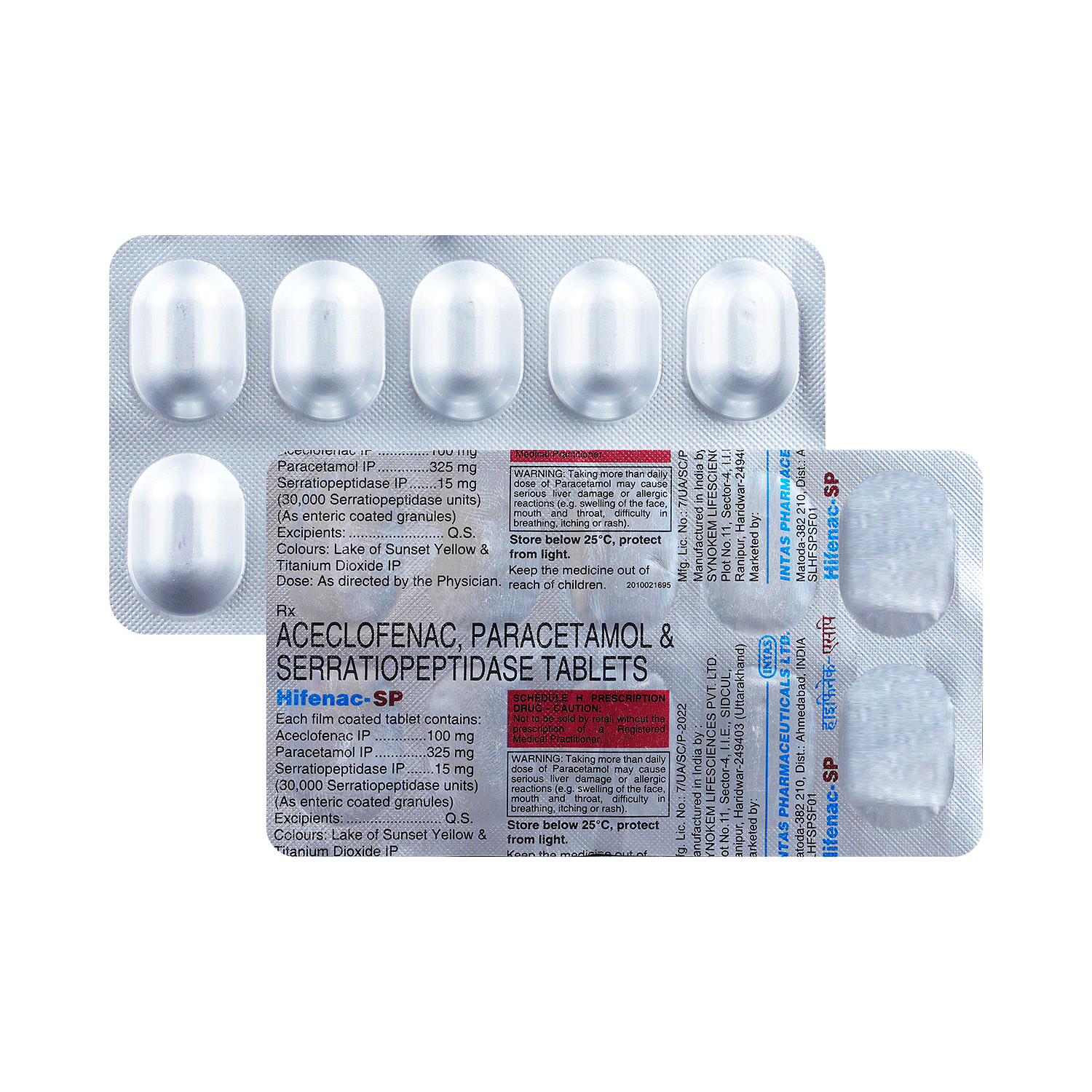
Hifenac-SP Tablet
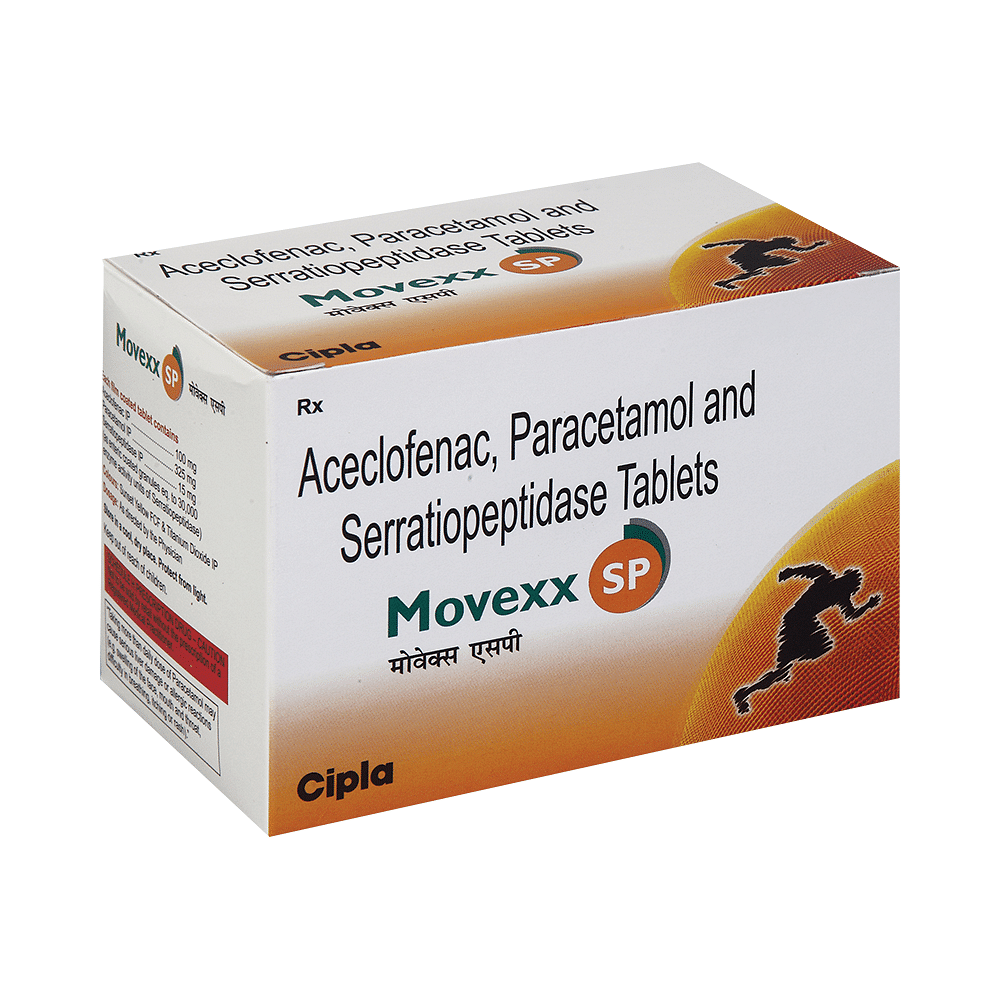
Movexx SP Tablet
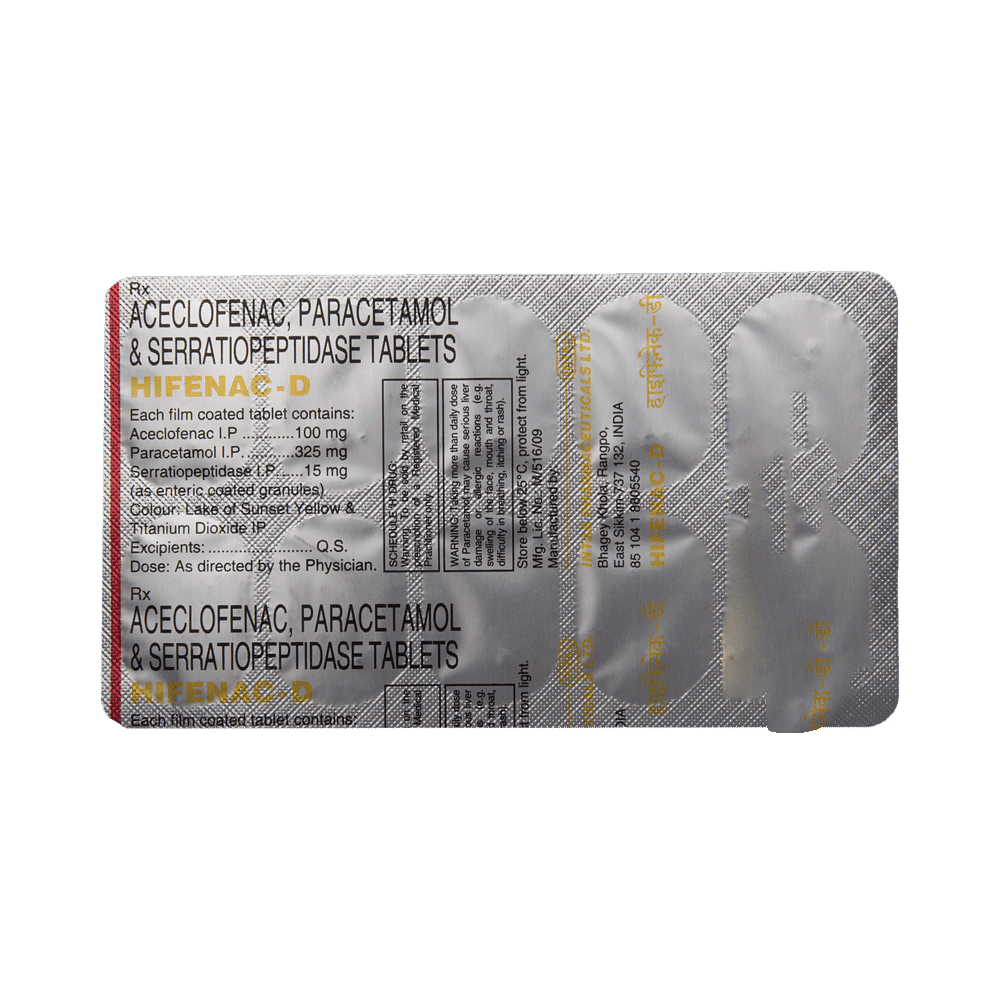
Hifenac-D Tablet
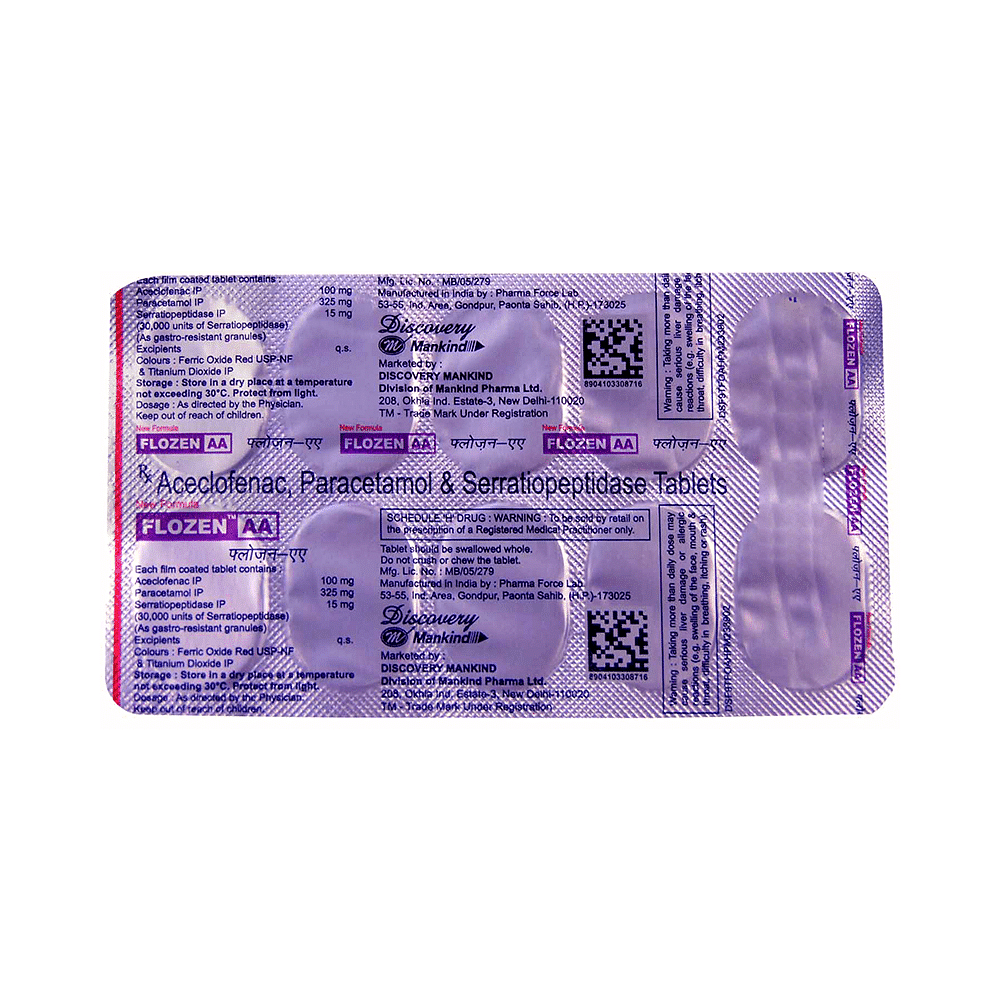
Flozen-AA Tablet
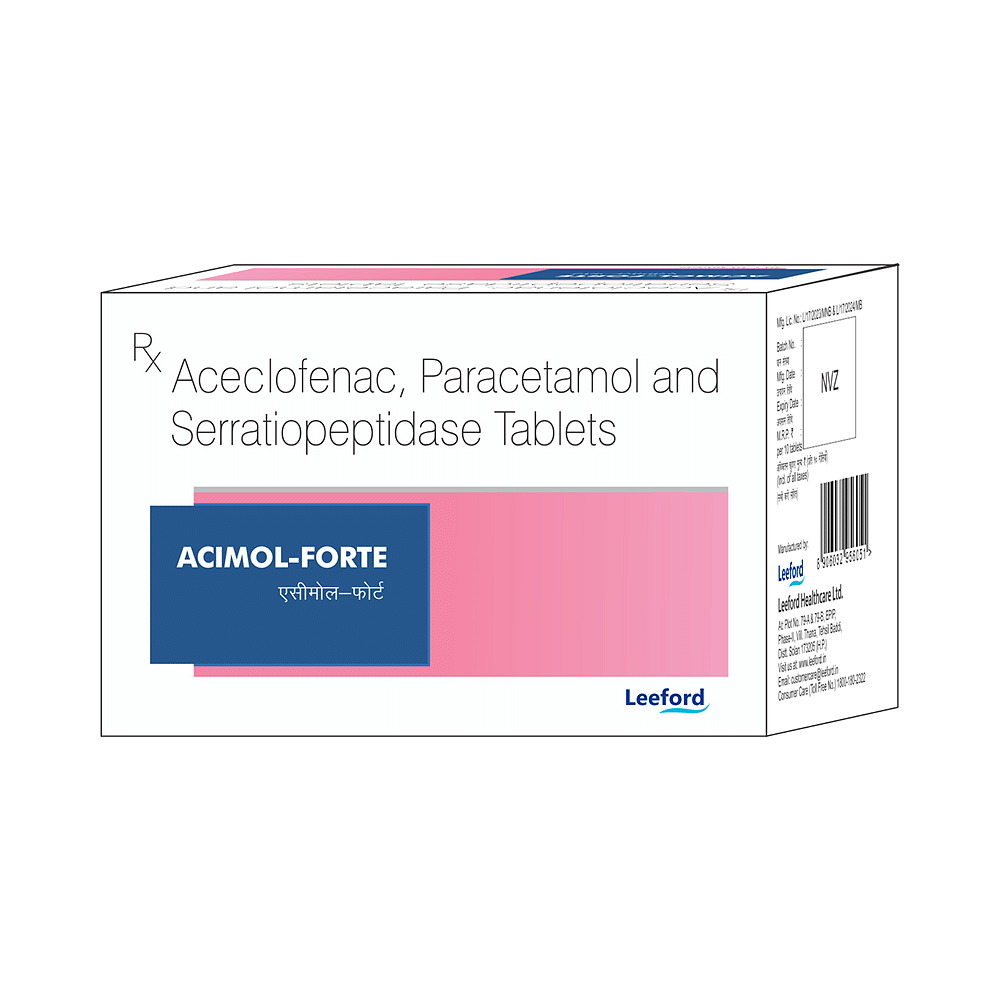
Acimol-Forte Tablet
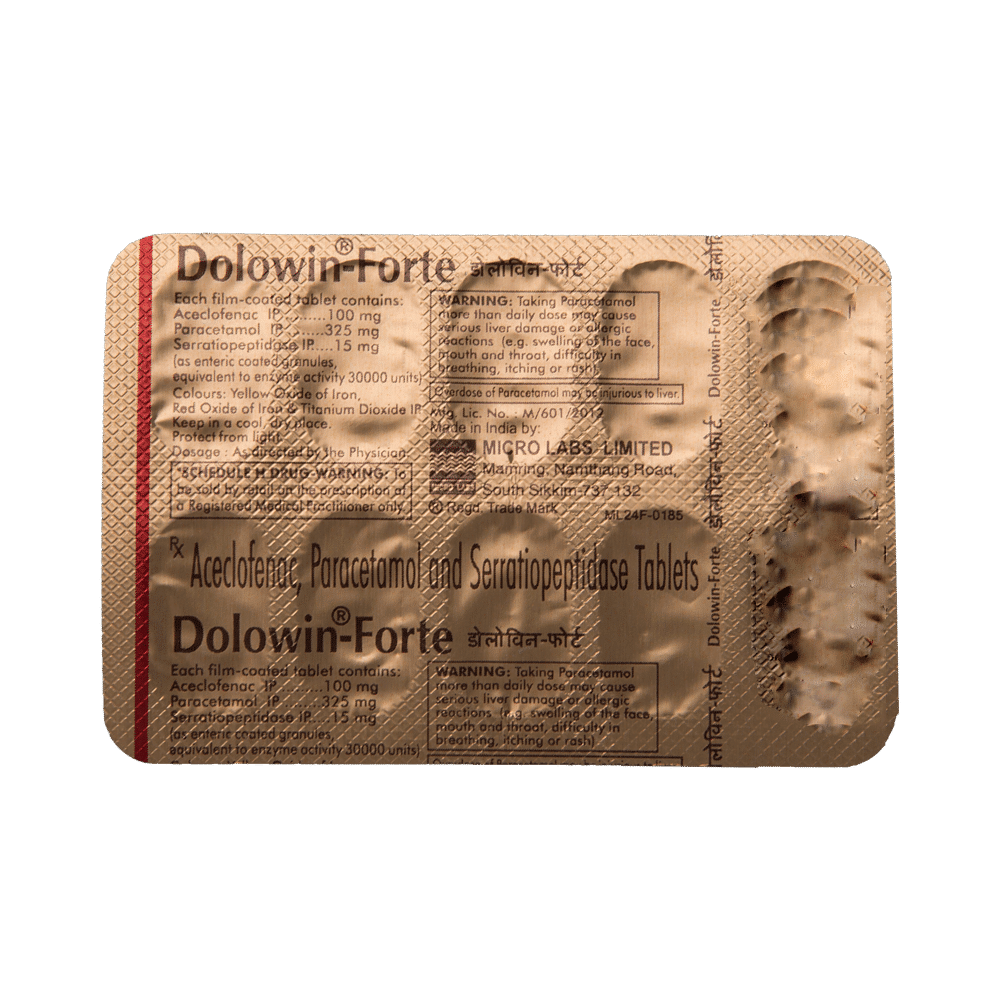
Dolowin-Forte Tablet
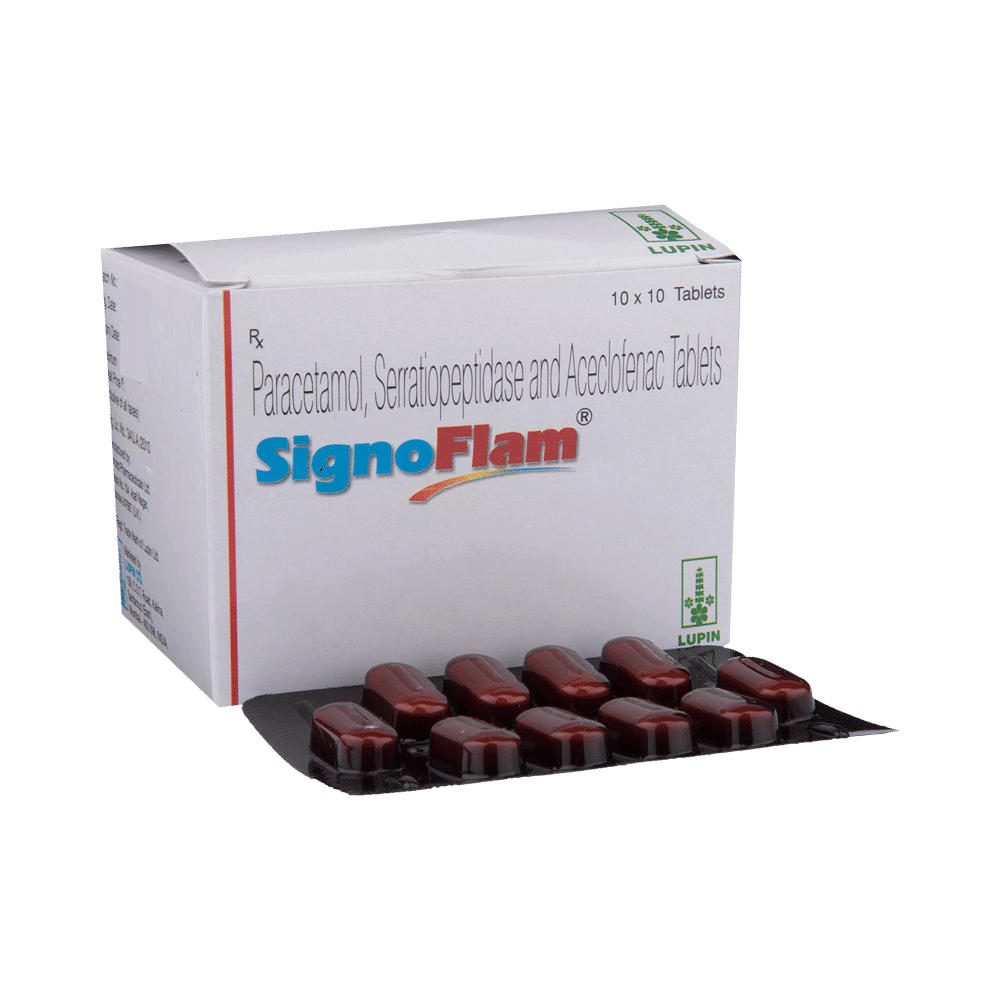
Signoflam Tablet
Frequently asked questions
What is Lyser-AP Tablet?
Lyser-AP Tablet is a combination medication containing Aceclofenac, Paracetamol, and Serratiopeptidase. It is used to relieve pain and inflammation.
Is it safe to take Lyser-AP Tablet?
Lyser-AP Tablet is generally considered safe for most patients. However, some people may experience unwanted side effects like nausea, vomiting, stomach pain, heartburn, and diarrhea. If you experience persistent problems or any serious side effects, consult your doctor immediately.
Can I stop taking Lyser-AP Tablet when my pain is relieved?
Lyser-AP Tablet is typically used for a short period and can be discontinued once your pain is alleviated. However, you should only discontinue the medication if recommended by your doctor.
Can Lyser-AP Tablet cause nausea and vomiting?
Yes, Lyser-AP Tablet may cause nausea and vomiting in some patients. Taking it with milk or food can help alleviate these symptoms. You should also avoid taking fatty or fried foods while using this medication. In case of vomiting, ensure you drink plenty of water or other fluids by taking small frequent sips. If you experience persistent nausea and signs of dehydration (dark urine, a change in urine frequency) talk to your doctor.
Can Lyser-AP Tablet cause dizziness?
Yes, some patients may experience dizziness after using this medication. If you feel dizzy or lightheaded, it's best to rest and avoid physical activities until you feel better.
Are there any specific contraindications for taking Lyser-AP Tablet?
Lyser-AP Tablet should not be used by patients with known allergies to Aceclofenac, Paracetamol, Serratiopeptidase or other pain relievers. Patients with a history of stomach ulcers and active/recurrent bleeding are advised to avoid using this medication.
Can I take Lyser-AP Tablet with vitamin B-complex?
Yes, Lyser-AP Tablet can be taken together with vitamin B-complex preparations. While it helps relieve pain, vitamin B-complex may help correct vitamin deficiencies contributing to the symptoms.
Can Lyser-AP Tablet cause kidney damage?
Yes, long-term use of this medication can potentially lead to kidney damage. The prostaglandins in the body protect kidneys from damage; However, painkillers decrease levels of these substances and can harm the kidneys over time. Therefore, the use of painkillers is not recommended for individuals with pre-existing kidney disease.
Can I take a higher dose of Lyser-AP Tablet than recommended?
No, exceeding the recommended dosage can increase the likelihood of side effects. If you experience increased pain severity or no relief after taking recommended doses, consult your doctor for re-evaluation.
What are the instructions for storing and disposing of Lyser-AP Tablet?
Store this medicine in its original packaging tightly closed. Follow the storage instructions mentioned on the label or the package. Avoid disposal into drains or garbage, as it may be harmful to pets and children. Dispose of unused medication according to your local guidelines.


